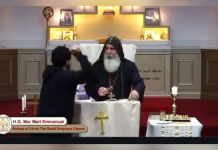I do not remember at what age I was introduced to two important principles traditionally embodied in the legal system of England. It may have been in a lesson about Magna Carta. Somewhere along the line in my education, I imbibed two key ideas about the administration of justice in this country. The first principle states that everyone is deemed to be innocent unless proved guilty. The second principle is that if a person receives a verdict of not guilty in a court setting, then this decision, whether made by jury or judge, is taken to be the final word on the matter. Because of the double jeopardy idea, it is not possible to keep trying again and again, using the same evidence but with different juries, to find someone guilty of a crime. I am sure that there might have been some push-back in my class, putting forward the notion that guilty people might get away with crimes through having a good lawyer. Whatever our feelings about the justice system in particular cases, most people accept that it generally works well. One special feature of the justice practised in the UK is that we are entirely free of political interference. The moment judges anywhere in the world become pawns to a political system, left or right, that is a moment when these societies begin to deteriorate, to become a cesspit of instability caused by an arbitrary use of power. We can be grateful for our British system of justice. This has been honed over many centuries to provide us with access to a fair and reliable system of interpreting and operating the law.
The political manipulation of justice is something that I met in Greece during the 60s. Individuals were thrown into jail for having incorrect opinions or being seen as some kind of threat to the right-wing junta. This political oppression affected me directly, but not in the sense that I feared for my own personal safety. My problem was that although my studies took me into making contact with all social groups, there were some well-connected individuals who feared any contact with someone from abroad. Even carrying a letter of introduction signed by the then archbishop, Michael Ramsey, could not penetrate these barriers of fear and self-protection that some had built around themselves. Opinions were things that you kept very private in case the wrong person was listening to your conversation. Then your job and even your freedom could be under threat.
The memory of living in a country where the legal system was exercised in an arbitrary way is something that I have retained over the years. In this country my dealings with the police and the justice system have been, thankfully, infrequent. The few encounters with the justice system have never caused me any sense of anxiety about the fundamental soundness of the institution, even though I realise that is not the experience of all. Justice in Britain seems to work most of the time. It came as something of a shock to me to realise that one place where arbitrary justice is sometimes found today is in the Church of England. In Friday’s Church Times there was an important article written by Peter Selby, a former Bishop of Worcester and Bishop to HM prisons. He has noticed that recent cases in the Church have indicated a less than robust concern for the basic principles of justice that every child in school used to be taught. His main concern is the case of Fr Griffin but the Christ Church saga is also noted. The principle of innocent until proved guilty was evidently ignored in the careless collecting of a ‘brain-dump’ of unsubstantiated gossip by an official in the Diocese of London. The way this information had been collected gave those targeted by this rumour and gossip no opportunity to challenge the information gathered about them. There was, in short, no way to establish their innocence. A fundamental principle for the maintenance of justice was thus being denied.
Peter Selby also reminds us about the case of Martyn Percy, where there also seems to be a complete breakdown of some of the principles of normal legal protocol as enshrined in English law. The Dean has been faced with accusations which total over 40 in number. Up till now every one of these has been examined and rejected in turn by individuals of high legal standing from within the State or Church’s legal system. We do not need to remind the reader that nowhere in the Christ Church process have we witnessed the normal assumptions of innocence. Indeed, we see the opposite. Neither the College nor the Diocese of Oxford have shown any respect for this or, indeed, the other principle that a declaration by a judge of effective innocence of a crime marks the end of a legal process. I confess myself baffled by the fact that the ruling of the top judge, Dame Sarah Asplin, should seem to be ignored and the same viciously restrictive protocols are still applied to Percy as though he is an acute safeguarding risk. These are reinforced by both Church and College. The most painful part of the whole process is the chronic lack of any sense of urgency. Surely as far as church processes are concerned, the ruling by Dame Sarah should have resulted in some immediate response by either the NST, the Oxford Safeguarding Team or even the Bishop of Oxford himself? Instead of decisions and action, we have witnessed agonising silence and paralysis within the system. This suggests that safeguarding protocols are simply not functioning properly in the diocese. A more accurate description might be to say that there is at present a situation of complete shambles. If the church authorities do know something about Percy’s behaviour that they have not yet revealed, then that might justify a delay. In the absence of anything new, the effect of delay is deeply corrosive to any building up of trust between bishop and the people of the diocese. Might one suggest that part of the problem is that both persecutory entities, the Church and the College, have been employing the same legal firm, Winckworth Sherwood to pursue their agendas? This firm, at least, has a financial stake in creating delay and prolonging the processes for as long as possible. Let us hope that the Charity Commission will soon step in to end the charade of legal process that passes for justice in the topsy turvy world of Christ Church and the diocese of Oxford.
In viewing the two chronic legal situations unfolding in London and Oxford, we are left with many questions. Why should senior church people in London and Oxford act with so little regard for the legal rights of individuals, let alone follow the dictates of Christian charity? Surely there must be some around the respective bishops who realise that what has been going on in each place contravenes the principles of natural justice? As things stand at present, the dioceses of Oxford and London seem to be firmly on the wrong side of justice and, indeed, of history. How could anyone disagree with the President of the Tribunals in her remarks about the Percy case or the coroner in the Griffin case? The issues in each case are, of course, different. In one case sloppy bureaucracy seems to be to blame. In the other there seems to be a visible working out of personal animosities. In this latter case we find a deliberate unhelpful failure by the Bishop to support his Dean. He now seems to be ignoring the finding of the Church’s President of Tribunals that whatever one believes happened in that brief meeting between the Dean and his accuser, it was neither sexual in character ( as some – though not the accuser – implied ) neither did it constitute “ serious misconduct”. Might the Bishop tell us why he thinks this does not make a difference to the restrictions which were imposed before such expert analysis was brought into play. It is one thing for a college to complain about their Head of House; it is quite another for a diocesan bishop to collude with these charges and allow the imposition of an absurd and disproportionate list of prohibitions. Does Bishop Croft wish to go down in history as the bishop who used his power to attempt to enforce a legal process so demonstratively cruel and unjust? One is reminded, at this point, of the story in the gospels where Beelzebub was invoked as being behind Jesus’ power. Jesus makes the comment about a kingdom which cannot stand when it is divided. The Bishop’s failure to offer any support for the Dean has dealt a divisive and traumatising blow against his whole diocese. Will this act of apparent malevolence be the event for which Bishop Steven will be most remembered in future decades?
Bishop Selby gives us two examples of senior church leaders ignoring natural justice and, in the process, doing much damage to the wider Church. I am still looking for someone outside the immediate circle of these two bishops who is prepared to interpret their actions in a more generous way than has been done so far. In the Percy case, I am aware of the cluster of College clergy and dons prepared to make outrageous assertions in their position of opposing the Dean. Does anybody really believe that Percy is another Peter Ball, a comment ascribed to one Christ Church canon? So far I have read nothing to indicate that anybody in the Church is actively supporting these two bishops and the way they have been behaving. Two clergymen have been denied access to the normal protocols of justice. One has taken his own life in a tragic suicide. In the Oxford case, Dean Percy still hangs on after three years of almost constant vicious persecution. The persecution is partly college initiated but there is an unseemly sight of a group of Cathedral clergy also involved in this cruelty. If there is indeed another story to be told about Percy’s malfeasance, it has not reached the public domain. When all we are offered is silence and absurd rumours, we are forced to come to our own conclusions, ones which are not favourable to the Bishop or Percy’s enemies.
This blog has many times had cause to question the administration of justice in the Church of England. The ability to trust the authority of bishops and authorities in the Church is an important prerequisite for the population outside church membership if they are ever to consider the claims of Christ. If the existing servants of the Church are regarded as unreliable or, worse still, dishonest, then it is hard to see anyone wanting to join local congregations. Many future generations of children in France are unlikely to find a sense of safety in the Catholic fold after the recent exposures. The same situation will apply when there are increasing failures of justice towards clergy in our Church. Double standards in the Southwark diocese with regard to Jonathan Fletcher and Stephen Kuhrt has also left many of us perplexed. There is a sense that the church seems totally out of its depth, even in administering its own rules and protocols. Once again, we come back to the plea that independent oversight is needed to save the church from its own disastrous decision making. If the church cannot deliver consistent justice, it ceases to be a safe place either for its employees or its members.










